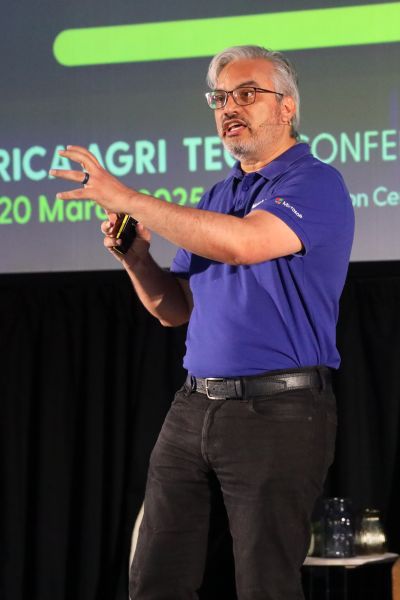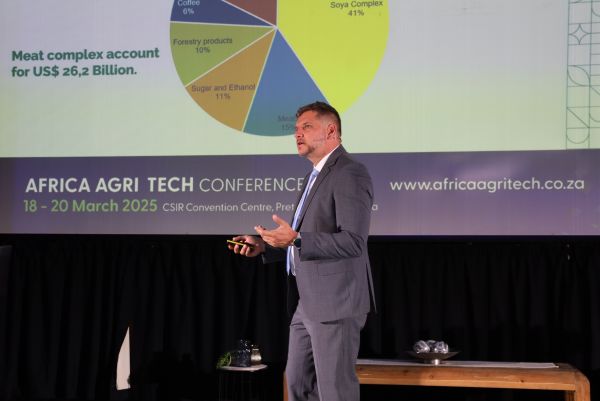Day 1 of the Africa Agri Tech Conference, held at the CSIR Convention Centre in Pretoria from 18 to 20 March, brought together leading industry experts and stakeholders to discuss how technology can drive agricultural productivity and sustainability. The overarching message was clear: the technology revolution has already begun, and the industry must embrace it to ensure efficiency, growth, and resilience in the face of climate change and global trade shifts.
Opening the conference, Tshwane Mayor Dr Nasiphi Moya emphasised the importance of innovation in ensuring food security and economic growth in the city. She highlighted Tshwane’s strategy to become an agro-processing hub that could boost employment and economic growth.
Master of Ceremonies, Andries Wiese, National Business Development Manager at Hollard Insurance, set the tone for discussions by stressing the urgency of addressing agriculture’s biggest risks. “Climate change is one of the most significant threats facing the sector. Technology must be used to mitigate these risks and improve resilience,” he said.
Prof James Blignaut, from ASSET Research, Stellenbosch University and the South African Environmental Observation Network, highlighted the importance of accurately measuring carbon in agricultural systems. He explained that traditional carbon calculation models have misrepresented the environmental impact of livestock farming. “Initially, carbon emissions from animals were calculated based on intake and exhalation, without considering how much carbon is reabsorbed into the ecosystem,” he said.
He noted that manure releases 54% of carbon into the soil rather than the atmosphere, and only 2.5% of this is methane. “This is then further reduced by the hydroxyl radical, which acts as a cleansing agent and scrubs out methane from the atmosphere. That which is not scrubbed is sent into the atmosphere where it stays for 9 to 12 years, not the 100 years that was initially stated.”

The revised carbon model challenges previous assumptions that placed meat and wool’s environmental footprint above that of petroleum-based fibres, offering new perspectives on sustainability in the sector.
Harnessing AI and Data to Boost Agricultural Efficiency
Speakers warned against overly complex technological solutions that hinder rather than help farmers. Tom Westphal, Executive Director of the South African Meat Industry Company, urged a pragmatic approach: “Software needs to solve problems. We are not splitting atoms; we are producing food. The systems supporting food production must be simple.”
Basson Engelbrecht, CEO of Reisiger Ventures, reinforced the importance of data as an asset, explaining how its value has evolved from simple record-keeping to predictive analytics that can drive intelligent decision-making. “We have evolved from descriptive data, which tells you what has already happened, to diagnostic insights, telling you why something happened. Today’s predictive analytics can be used to show us what to do to make something happen or prevent it.”
Similarly, Brett StClair, known as ‘The Rebel Technologist,’ argued that artificial intelligence (AI) should be seen as an opportunity rather than a threat. “AI can multiply human intelligence, improve efficiency, and help us make better decisions because it is using data from the best experts in the world,” he said.
Riedwaan Bassadien, Principal Data and AI Specialist at Microsoft South Africa, demonstrated how generative AI can enhance decision-making. “We have been collecting agricultural data for years; now, we must turn insights into action. Asking generative AI systems to analyse our data, and that which is publicly available, can provide real actions that can be taken to improve productivity or profitability. AI can identify early signs of disease in livestock, optimise vaccination schedules, and advise farmer how to plan for expected increases in feed costs,” he explained.









